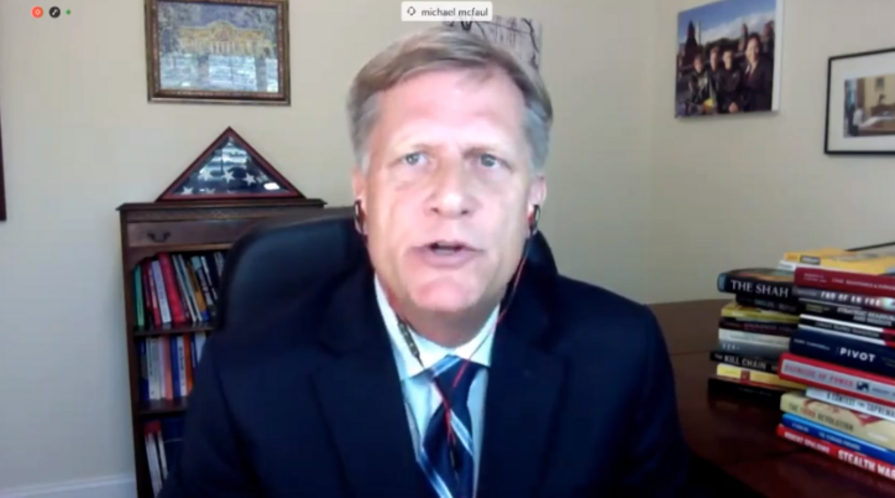Michael McFaul Testifies on Russian Threat to the U.S. Before House Committee on Foreign Affairs
Michael McFaul Testifies on Russian Threat to the U.S. Before House Committee on Foreign Affairs
Former U.S. Ambassador to Russia Michael McFaul provides testimony for a House Foreign Affairs Subcommittee hearing held in response to a U.S. intelligence report that accused Russia of paying bounties to Taliban fighters to kill American soldiers in Afghanistan.

The House Foreign Affairs Subcommittee on Europe, Eurasia, Energy, and the Environment held a public hearing on Tuesday, July 7, 2020, in response to a U.S. intelligence report that accused Russia of paying bounties to Taliban fighters to kill American soldiers in Afghanistan.
The hearing, “Exposing and Demanding Accountability for Kremlin Crimes Abroad,” included testimony by Michael McFaul, former U.S. Ambassador to Russia and Director of the Freeman Spogli Institute for International Studies.
EXCERPT
We need to learn more about this latest instance of Russian belligerence against the United States before drawing definitive conclusions. Intelligence officials should continue to brief Congress. More hearings should be held with senior foreign policy decision-makers in the Trump administration, since the administration’s explanation of the intelligence is confusing and has changed. According to NSC spokesperson John Ullyot, “The veracity of the allegations continues to be evaluated.”
Trump’s press secretary then asserted that there was no consensus within the intelligence community about this finding, but that claim stands in tension with the detailed reporting that asserted this intelligence appeared in the Presidential Daily Briefing (PBD) on February 27, 2020. Intelligence on sensitive matters almost never is 100% verified. But in my three years of working at the National Security Council in the Obama administration, I do not recall flimsy, unconfirmed, circumstantial, or heavily disputed intelligence appearing in the PBD; debates with the intelligence community usually are resolved before a story appears in this most precious of intelligence products. (Remember, it is a serious crime to leak secret intelligence to the press, suggesting that this intelligence must have been credible and frightening enough for a U.S. official to risk going to prison in order to publicize it). At the moment of this hearing, however, the basic and detailed facts as reported in numerous media outlets have not been refuted. These latest revelations would only be an escalation of Russian support for the Taliban that started years ago.




